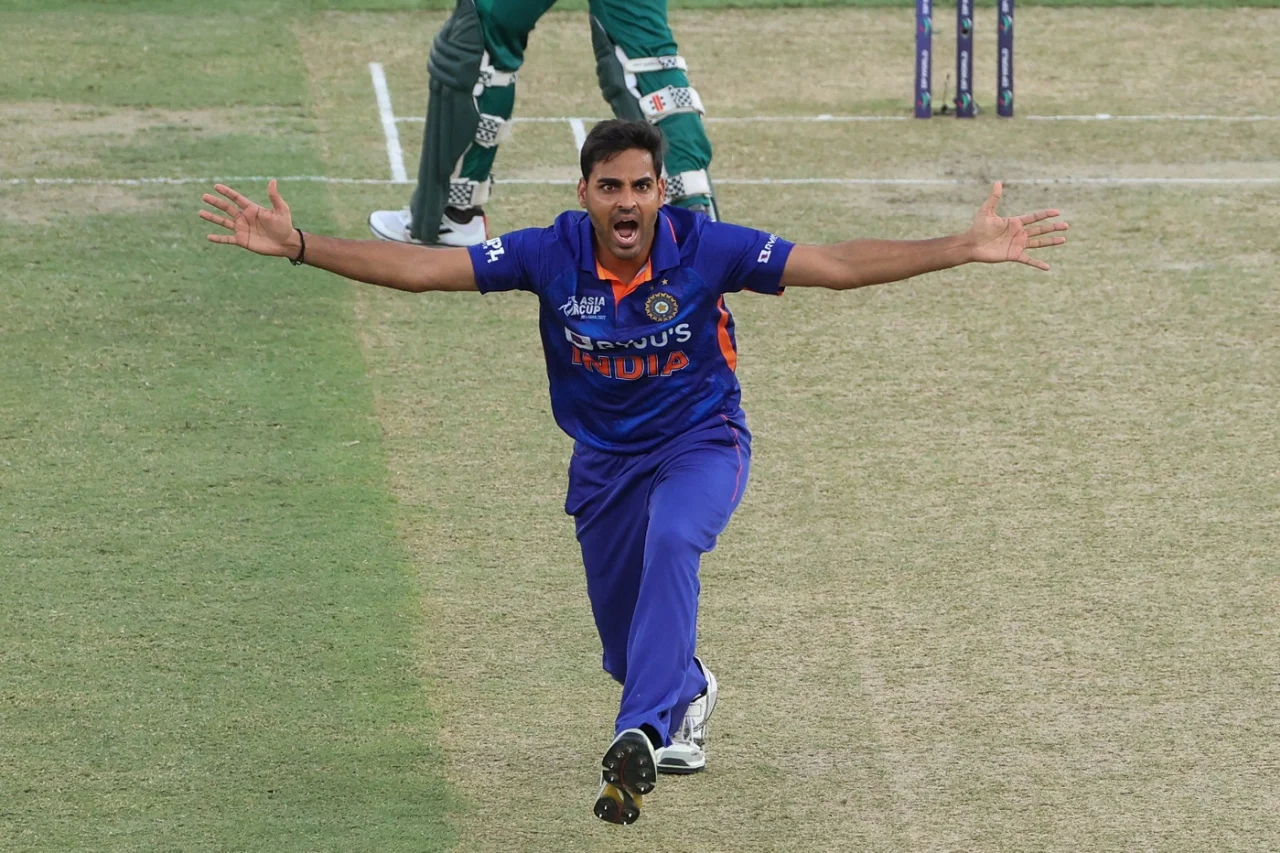
The two consecutive defeats against Pakistan and Sri Lanka in the Asia Cup, which is played in the T20I format, have raised several questions for India

The two consecutive defeats against Pakistan and Sri Lanka in the Asia Cup, which is played in the T20I format, have raised several questions for India. One of the major concerns is that in both the games, India’s bowlers came a cropper in death overs and conceded too many runs in the last three overs which resulted in their defeats.
Bhuvneshwar Kumar, in particular, has come in for a lot of flak as he gave away 19 and 14 runs, respectively, in the 19th over against Pakistan and Sri Lanka. As a result, the left-arm seamer Arshdeep Singh had only 7 runs to defend on both occasions, which proved too few.
After their underwhelming performance in the Asia Cup, India have to fix a string of issues. One of them seems to be death bowling after the tournament. But before the Asia Cup, India were doing decently in death overs in 2022 despite losing some matches in the 20th over.
India have played 25 T20Is in 2022; out of these, they emerged victorious in 18 and lost 6. One match was called off due to incessant rain. Out of 6 matches which India have lost in 2022, 4 defeats came in the 20th over. Two of them – against Pakistan and Sri Lanka – have come in 2022.
Another last-over defeat had come against South Africa in the first T20I of the bilateral series in Delhi. The visitors needed 56 runs in the last 4 overs and the equation seemed insurmountable. But Rassie van der Dussen and David Miller unleashed mayhem and South Africa won the match with 5 balls remaining in the last over.
The real damage was done in the 17th and 18th over as Harshal Patel and Bhuvneshwar Kumar conceded 44 runs in those two overs. As a result, India were left to defend just 12 runs in the last two overs which weren’t sufficient. The important point to note here is that in all the three matches mentioned, though the defeat came in the 20th over, the actual havoc was wreaked between 17 and 19th overs.
Another match in 2022 which India lost in the 20th over was a T20I against West Indies. In this encounter, India were defending a subpar total of 138 and really in the hunt. In the last two overs, they needed only 16 runs with five wickets in hand. Arshdeep bowled a creditable 19th over as he gave away only 6 runs and nipped out the dangerous Rovman Powell. West Indies knocked off 10 runs on the first two balls of the 20th over, bowled by Avesh Khan, and sealed the win.
On the other hand, there are many matches which India have won in the last over. Recently, Hardik Pandya caned Pakistan’s left-arm spinner Mohammad Nawaz for a six in the final over to clinch a cliffhanger in Asia Cup.
Earlier this year, India had edged West Indies in the 2nd and 3rd T20Is at Kolkata by defending 29 and 31 runs respectively in the last two overs. India also successfully defended 31 runs in the last two overs against Ireland and registered a 4-run win.
These statistics lucidly establish that India have done fairly well in the death overs apart from the last two matches in the Asia Cup. There are two more significant points to ponder over. First, T20 matches are high-octane encounters and many matches go down to the wire. In fact, most of the contests between two good teams end in the 19th or 20th over. That’s the inherent nature of the format.
Second, in all the matches which India lost in the death overs, there was no Jasprit Bumrah in the playing XI. Either he was being rested or was out due to injury. Bumrah is arguably the best death-overs bowler in the T20I format and has been instrumental in India’s success in the format. He is expected to be fit for the T20 World Cup and his return will substantially shore up India’s bowling in death overs.